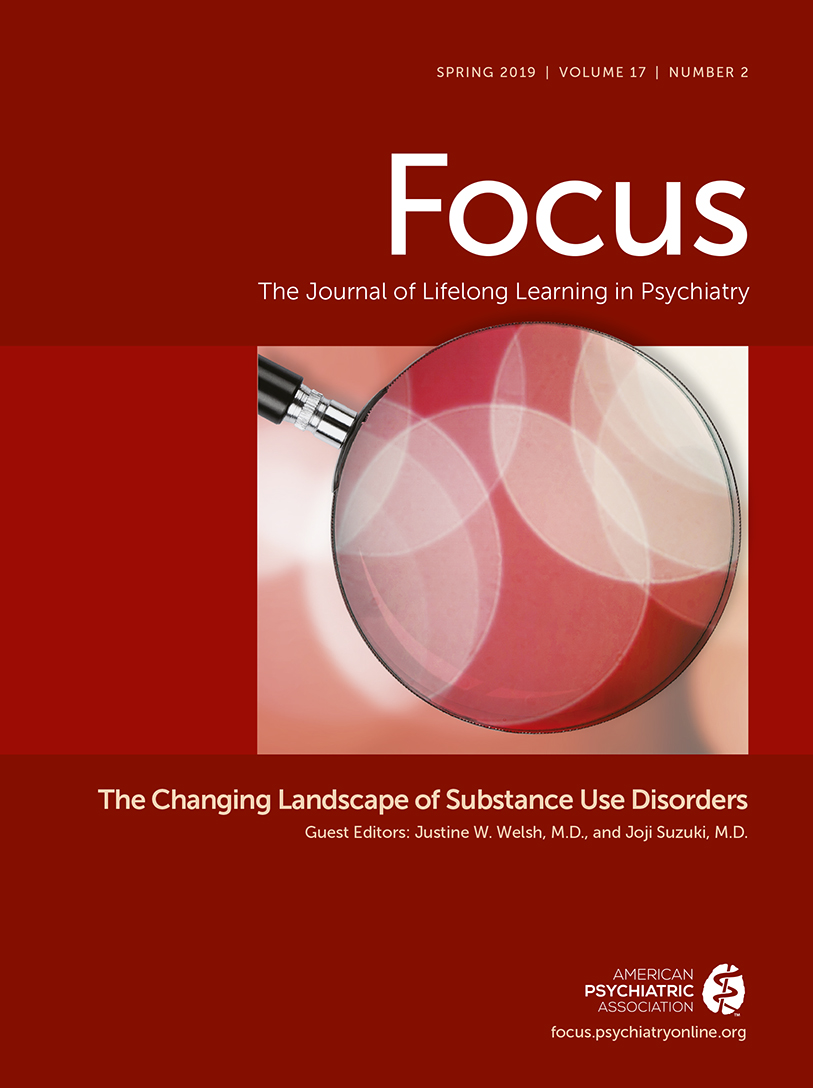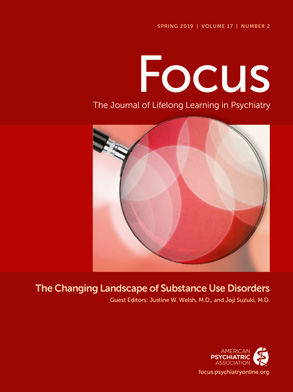Drug overdoses are now one of the leading causes of injury and mortality in the United States. Similar to the U.S. strategy for the AIDS epidemic, the country needs a highly coordinated response to combat increasing rates of substance use. Unfortunately, many underserved areas still lack access to evidence-based treatments. Important questions about substance-related treatment strategies also remain unanswered, such as how long to leave individuals on medication-assisted treatment and whether certain formulations of buprenorphine work better for specific patient populations. This issue of Focus explores a range of substance-related topics that are clinically relevant to the practicing psychiatrist. The articles are written by some of the leading experts in the areas of clinical treatment, research, and drug related-policy. We thank Focus’s editor, Mark Rapaport, M.D., for encouraging us to highlight such an important topic.
On the opioid front, Bertha Madras, Ph.D., a member of the President’s Commission on Combating Drug Addiction and the Opioid Crisis, and her colleague, Hilary Connery, M.D., Ph.D., provide an insightful analysis of the scope of the opioid crisis and governmental efforts to combat the growing epidemic (
1). They also propose roles that psychiatrists could take in advocating for change and providing high-quality treatment of patients with substance use disorders. Richard Rosenthal, M.D., carries the theme of opioid-related disorders and offers a review of various delivery systems for intermediate- to long-acting buprenorphine maintenance treatment options, some of which are novel solutions to reduce issues related to diversion and nonadherence (
2). Finally, Joji Suzuki, M.D., as a co-guest editor of this issue, discusses the approach to general hospital treatment of endocarditis that is associated with injection drug use (
3).
However, we also need to be careful not to have the opioid epidemic overshadow the demand for more effective treatment strategies for all substance use disorders. Co-guest editor Justine Welsh, M.D., examines the use of substances on college campuses, as well as some of the specific challenges and approaches to treatment in this population (
4). Despite significant gains across the field, training in addictions remains limited not only in the medical community, but also in general psychiatry. In this issue, John Renner, M.D., provides a review of the inadequacy of addiction training among psychiatric residents and the stigma associated with substance use treatment (
5). To overcome such challenges, he proposes ways to incorporate additional training into the psychiatric curriculum based on his experience working with the Boston University/Veterans Affairs training model. Amid the changing political landscape, Arthur Williams, M.D., and Kevin Hill, M.D., M.H.S., offer insight into cannabis policy and provide a comprehensive review on the epidemiology and treatment of cannabis use disorder (
6). Muhammad Iqbal, M.D., and colleagues explore treatment recommendations for co-occurring substance use disorders and other psychiatric conditions (
7). We hope that these articles provide much-needed insights into the significant progress our field has made and where we hope to go in our ability to provide tailored treatment options to individuals with substance use disorders.

